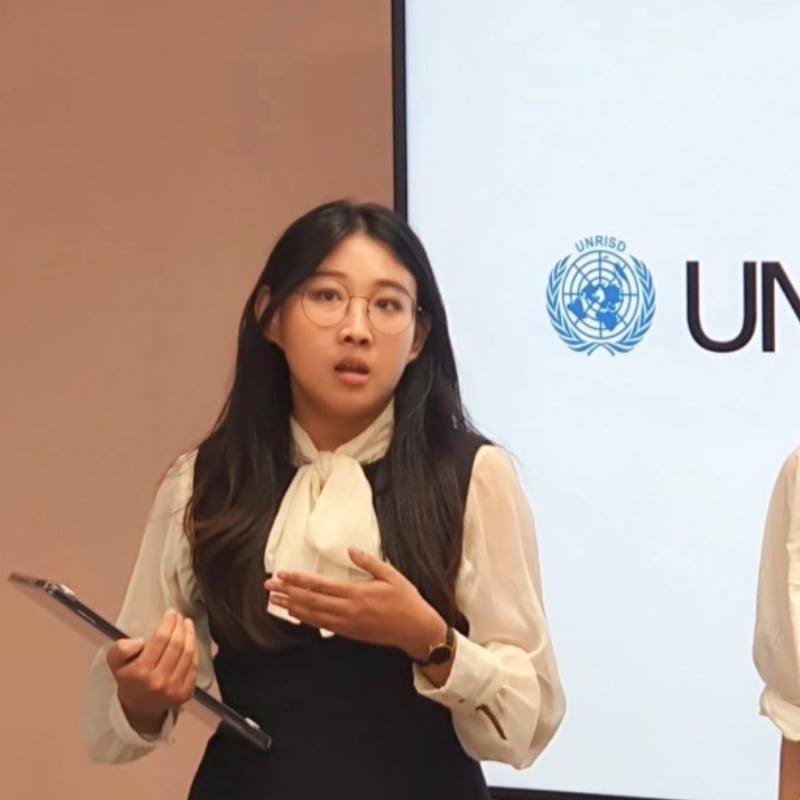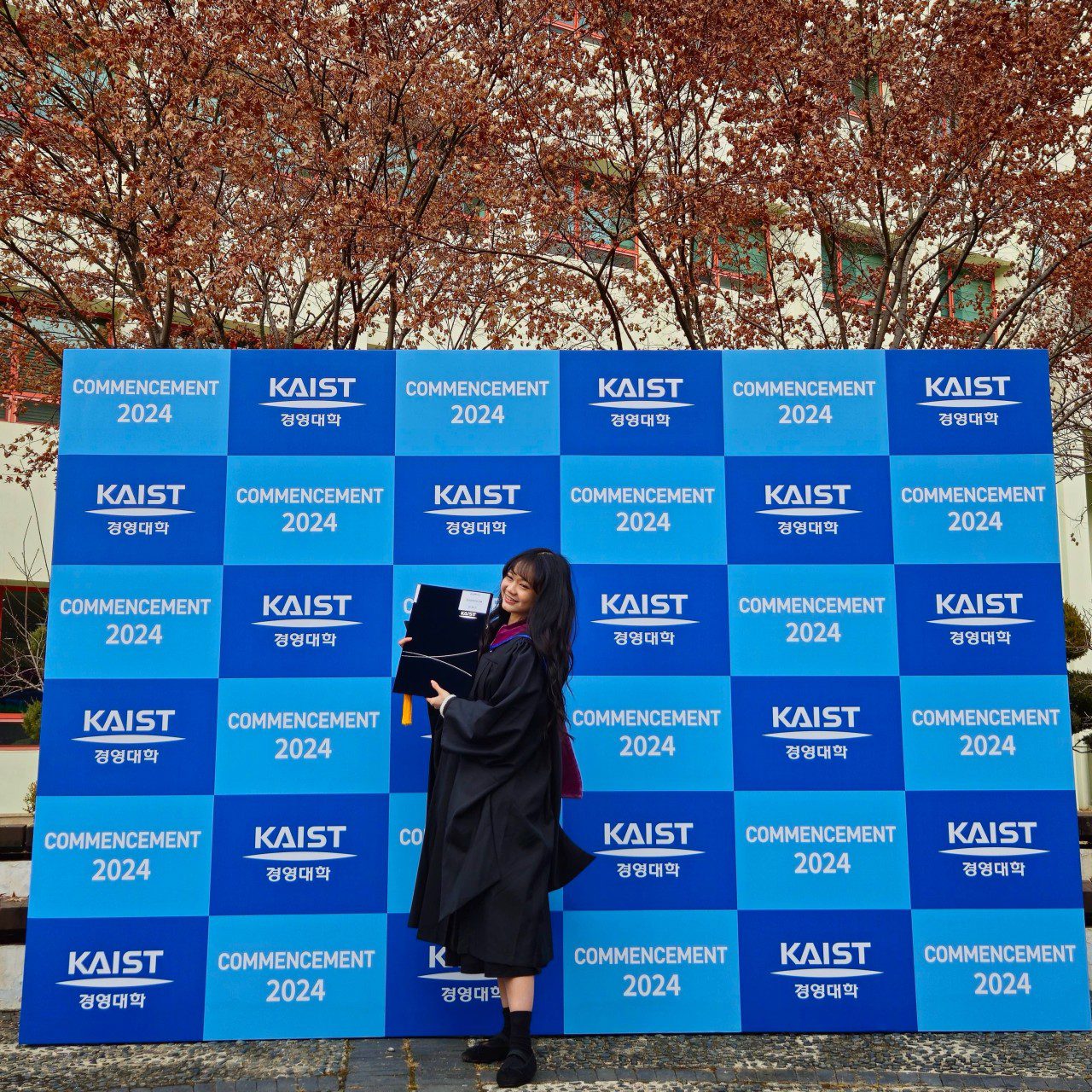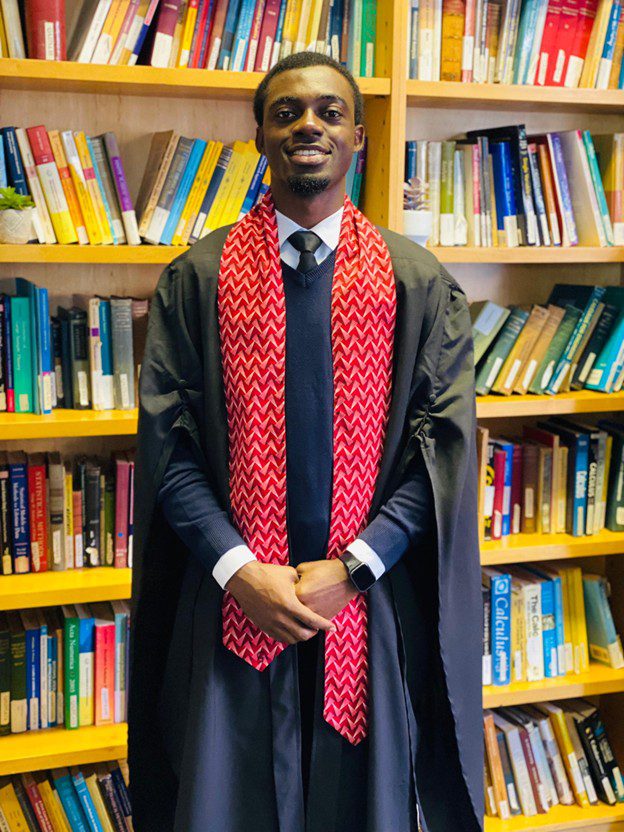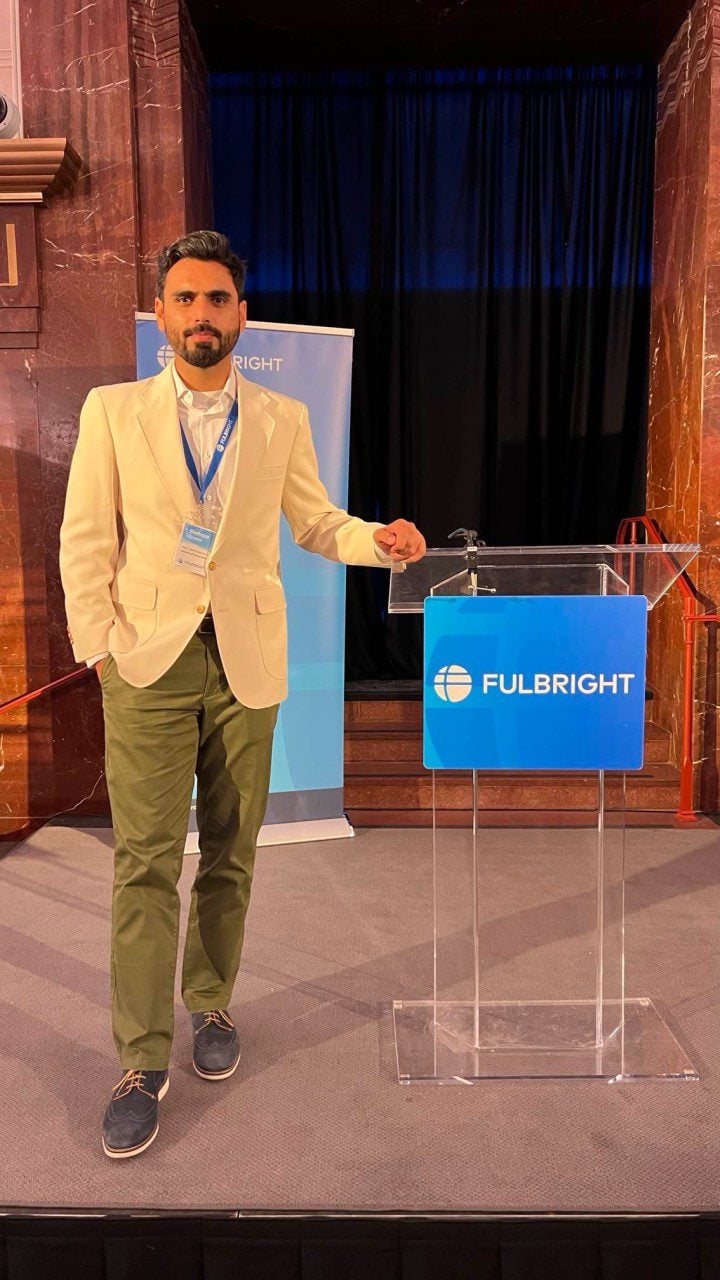KAIST Scholar, May from Myanmar, Now Pursuing a Fully Funded PhD in Cybersecurity for Power Systems at Delft University of Technology (TU Delft), Netherlands
University: Delft University of Technology (TU Delft)
Degree: PhD in Electrical Engineering (Cybersecurity for Power Systems)
Previous Education: MSc in Computer Science – KAIST, South Korea | Bachelor of Computer Science (Honours) – University of Yangon, Myanmar | Master’s in Science and Technology Policy – KAIST, South Korea
Scholarship: KAIST Scholarship – Fully Funded (Tuition + ₩350,000 monthly stipend)
Other Offered Scholarships (if any): Global Korea Scholarship (GKS) for ASEAN Countries – Fully Funded (Short-term) | Hyundai Motor Chung Mong-Koo Global Scholarship – Fully Funded | Horizon Europe PhD Funding – Fully Funded
Social Media
LinkedIn: linkedin.com/in/may-myat-thwe-21545b171/

The Journey
My name is May Myat Thwe, and I am from Myanmar. I completed my Bachelor of Computer Science (Honours) at the University of Yangon, Myanmar. Later, I earned my Master of Science in Computer Science from the Korea Advanced Institute of Science and Technology (KAIST) in South Korea.
Currently, I am pursuing my PhD in Electrical Engineering (Cybersecurity for Power Systems) at Delft University of Technology (TU Delft) in the Netherlands. My academic journey has been about growing from learning theory to applying it and developing it. With a background in computer science and technology policy, I am fascinated by how complex technologies and systems connect and impact our daily lives. That curiosity led me to pursue further studies and research in areas where AI, cybersecurity, and sustainable development come together.
As a PhD researcher, I’m exploring how we can make modern energy systems smarter and more secure against emerging cyber threats. For me, pursuing further education is not just about earning a degree; it’s about contributing to solutions that support a safer, more sustainable future.
KAIST Scholarship Details
I received a KAIST Scholarship for my Master’s degree, provided by the Korea Advanced Institute of Science and Technology (KAIST). It covered full tuition fees and provided a monthly allowance of ₩350,000, with opportunities to earn additional income as a research assistant.
Were You Offered any Other Scholarships?
Global Korea Scholarship (GKS) for ASEAN Countries Science and Engineering Students by NATIONAL INSTITUTE for INTERNATIONAL EDUCATION (NIIED), Ministry of Education, Republic of Korea. It was a fully-funded scholarship that covered flight, visa, living expenses, accommodation, etc., to study in Korea for 6 weeks (Korean language and Information and Communication Engineering at Jeonbuk National University).
Hyundai Motor Chung Mong-Koo Global Scholarship, a fully funded scholarship that includes full tuition coverage, settlement allowance, and a ₩1,000,000 monthly stipend, graduation incentives, and financial support for attending international conferences or journal publications. They also organized fellowship programs and provided funding to do an internship at the United Nations.
Currently, I’m working on a PhD project funded by the European Commission’s Horizon Europe. That basically covers all PhD-related courses, project meetings, attending conferences, etc.
Educational Background
I hold a Bachelor of Computer Science (Honors) from the University of Yangon and a Master of Science in Computer Science from KAIST, and I also pursued Master's studies in Science and Technology Policy. My academic journey has been interdisciplinary, combining computer science, systems engineering, and technology policy. My master’s research focused on cybersecurity for system-of-systems, while I also gained experience in AI for sustainable development by working as a research assistant and teaching assistant for courses in Policy Design and Practice, Smart Energy, Environmental Technologies, and Innovative Governance. These experiences built a strong foundation for my PhD research, which focuses on the development of digital twins and AI methods for power systems cybersecurity, the work funded by the European Commission, contributing directly to Europe’s climate and energy transition goals.
How Did You Prepare to Apply to KAIST?
I first learned about Korean universities and scholarships through the 2016 GKS (Global Korea Scholarship) for Asian Countries’ Science and Engineering Students short-term exchange program, which I was selected for during my undergraduate studies in Myanmar in 2016. Spending six weeks in Korea exposed me to the country’s education system, language, culture, and academic environment. I also attended the 29th International Youth Forum in 2018, where I met KAIST students who shared their experiences and motivated me to study there. Later, when I reached out to a potential supervisor at KAIST, he informed me about available scholarships and funding opportunities.
How Did You Prepare to Apply to the KAIST Scholarship?
To prepare for graduate school, I focused on maintaining strong academic performance since I was in an undergraduate program, improving my English and Korean language skills. I studied intensively, reached out to potential supervisors, and carefully prepared my application materials to reflect my research interests and achievements. Beyond academics, I also participated actively in extracurricular and volunteer activities that shaped my global perspective.
I served as an advisory committee member in KAIST International Community Enhancement Program (KICEP), which develops policies to support international students and faculty and serves as their voice. I also volunteered as research lead in Women in AI (WAI)-Myanmar, a non-profit organization promoting gender-inclusive AI through education, events, and public awareness. In addition, I took part in international programs such as the International Youth Forum and Ideathons, which allowed me to collaborate with people from diverse backgrounds and exchange ideas on innovation and technology. I also served as a KAIST student ambassador and editor of KAIST’s “Behind Sciences” magazine. I believe these experiences not only strengthened my leadership and communication skills but also deepened my motivation to continue contributing to international academic and research communities, which are often plus points when applying for scholarships.
Are Your Classes Conducted in English or Korean?
When I was at KAIST, even though all classes were conducted in English, for day-to-day communication outside class, I needed to communicate in Korean.
Would Potential Students Have Any Problems Academically, Not Knowing Korean?
I think it would be challenging for students in most Korean universities if they don’t have Korean language proficiency, since most of the courses are in Korean. In the case of KAIST, 80% of courses are offered in English, and I didn’t have any issues. Taking classes in Korean would be challenging even if you have TOPIK 6.
What Do You Think Made Your Application Stand Out?
I believe what made my application stand out was the balance between strong academic performance and meaningful extracurricular involvement. Besides grades and research publications, I actively engaged in volunteering and leadership activities that showed my initiative and commitment beyond academics. My participation in international programs also helped demonstrate that I can work effectively in multicultural and interdisciplinary environments. I also spent time researching my target programs and professors, and aligning my research interests with ongoing projects at the institutions I applied to. This showed genuine motivation and fit, not just a desire to study abroad, but a clear vision of why I wanted to pursue that specific research.
What Advice Would You Give Those Looking to Apply for a Similar Scholarship?
Here are some key things that truly helped me along the way
- Don’t just apply based on the university name.
Research the program, professors, and their research projects deeply to find the best fit for your interests.
- Craft a personal story that makes sense.
Connect your past experiences and skills with your current research interests and future goals in your statement of purpose.
- Include a clear study or research plan.
Identify the research problem(s) you want to address, outline the methods or techniques you plan to use, and mention relevant courses that will support your work.
- Link it to your future.
Show how the degree aligns with your long-term academic or career vision.
- GPA and language proficiency matter.
Check the admission requirements early and prepare well; top universities are highly competitive. I did have both IELTS and TOPIK (Korean Language Proficiency).
- Add volunteering or extracurriculars.
These highlight leadership, initiative, and your ability to contribute beyond academics.
- Request recommendation letters early.
Be polite, explain the program clearly, and give your professors or supervisors enough time to write strong letters.
Want to submit your
scholarship journey?
Submit Your Story Here!
More Scholarship Recipients

My name is Vania Estrellita Soegiarto, and I am from Indonesia. I pursued a Finance MBA at KAIST Business School in South Ko .... Read more

Hello, I’m Toyeeb Olamilekan Abubakar from Nigeria. I earned a Bachelor of Science degree in Statistics from the Universit .... Read more

My name is Shehryar Jafar, and I’m from Karachi, Pakistan. I’m currently a PhD student in Electrical Engineering at the .... Read more

Leave A Comment